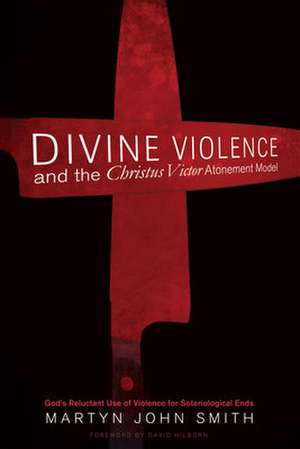Divine Violence and the Christus Victor Atonement Model
Autor Martyn John Smith Cuvânt înainte de David Hilbornen Limba Engleză Paperback
| Toate formatele și edițiile | Preț | Express |
|---|---|---|
| Paperback (1) | 222.99 lei 6-8 săpt. | |
| – | 222.99 lei 6-8 săpt. | |
| Hardback (1) | 308.61 lei 3-5 săpt. | |
| – | 308.61 lei 3-5 săpt. |
Preț: 222.99 lei
Nou
Puncte Express: 334
Preț estimativ în valută:
42.67€ • 44.64$ • 35.45£
42.67€ • 44.64$ • 35.45£
Carte tipărită la comandă
Livrare economică 02-16 aprilie
Preluare comenzi: 021 569.72.76
Specificații
ISBN-13: 9781498239479
ISBN-10: 1498239471
Pagini: 262
Dimensiuni: 152 x 226 x 18 mm
Greutate: 0.39 kg
ISBN-10: 1498239471
Pagini: 262
Dimensiuni: 152 x 226 x 18 mm
Greutate: 0.39 kg
Notă biografică
Dr. Martyn J. Smith teaches Philosophy, Ethics, and Religious Education at a school in England.
